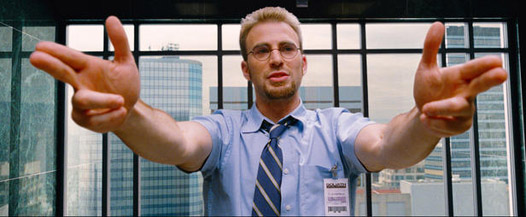|
|
Book Vs. Movie: The LosersBy Russ BickerstaffApril 27, 2010
The events of the original six issues proceed to play out over the rest of the film with some considerable deviation. The most notable difference here is Aisha, who is played here by Zoe Saldana - a New Jersey native of Dominican/Puerto Rican descent. The change in Aisha’s nationality makes sense, but loses quite a bit of the cultural edge she had as an Afghani woman. When prompted, the character says she’s from North Africa. Saldana plays her as dangerous and mysterious, but she lacks the steely, quiet intensity of the Afghani character in the comic book. Here Aisha has access to funds that allow the squad to re-enter the US in an effort to track down Max. The biggest success of film over the comic book has to be the interaction between squad members. Biggle is remarkably incompetent at rendering the overall social dynamic of the group, allowing much of that to fall to the leaden, iconic artwork of Jock. The ensemble assembled for the film does a really good job of fleshing out the social dynamic between members of the team. Jeffrey Dean Morgan has a rugged charisma as Clay. Columbus Short brings a sympathetic affability to the pilot Pooch. Óscar Jaenada is appropriately quiet as Cougar. Chris Evans takes a relatively annoying hipster character and makes him probably the single most appealing guy in the film. As Jensen, Evans manages a great deal of savvy that continues to prove his abilities as a contemporary action star. One of the best scenes in the film features Evans as Jensen breaking into a corporate office to gain access to a hard drive. It’s taken straight out of the comic book, making it to the film pretty faithfully. Director Sylvain White brings it to the screen with added style, drawing-in an extended elevator trip to the office and bringing the action in and out with a cleverly incongruous use of Journey’s Don’t Stop Believin’. Really, if the rest of the film worked this efficiently, it would’ve been far superior to the comic book.
[ View other columns by Russ Bickerstaff ]
[ View other Book vs. Movie columns ]
[ Email this column ]
|

|
|
|

|
Monday, April 29, 2024
© 2024 Box Office Prophets, a division of One Of Us, Inc.


